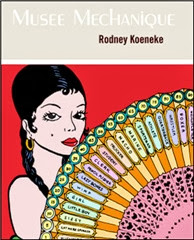 Spy Wednesday is the hump day of Holy Week, smack in the middle of Christ’s Passion, but it also evokes the surveillance and identity protocols that condition dissent in our age of “intense decathexes.” The title’s a great example of Brazil’s allusive dexterity as he plays embedded reporter to himself over the course of a single week involving protest, arrest, breakups and meetups, all set to the rhythm of a witty “call & response across the segment” with Beckett, Melville, St. Paul, Patti Smith, Machiavelli, Spinoza, Lou Reed, Ranciere, and Augustine (Dylan’s plus Benedict’s), inter alia. A real-time interrogation of “the possibilities of/meaningful intervention” under Code Yellow conditions, the poem’s also a meditation on the value of ‘the literary’ itself, in which what you read figures as a Greek chorus of comforters and told-you-so confidants, and what you write becomes “an education in what/life is when it goes otherwise—/otherwise than planned.”
Spy Wednesday is the hump day of Holy Week, smack in the middle of Christ’s Passion, but it also evokes the surveillance and identity protocols that condition dissent in our age of “intense decathexes.” The title’s a great example of Brazil’s allusive dexterity as he plays embedded reporter to himself over the course of a single week involving protest, arrest, breakups and meetups, all set to the rhythm of a witty “call & response across the segment” with Beckett, Melville, St. Paul, Patti Smith, Machiavelli, Spinoza, Lou Reed, Ranciere, and Augustine (Dylan’s plus Benedict’s), inter alia. A real-time interrogation of “the possibilities of/meaningful intervention” under Code Yellow conditions, the poem’s also a meditation on the value of ‘the literary’ itself, in which what you read figures as a Greek chorus of comforters and told-you-so confidants, and what you write becomes “an education in what/life is when it goes otherwise—/otherwise than planned.”
11 hours ago










